American cellist David Finckel embarks on a series of seminars – entitled Being a Musician – at Stony Brook University, New York on 3 February. Here, he identifies the important habits of those musicians who have built and maintained successful careers
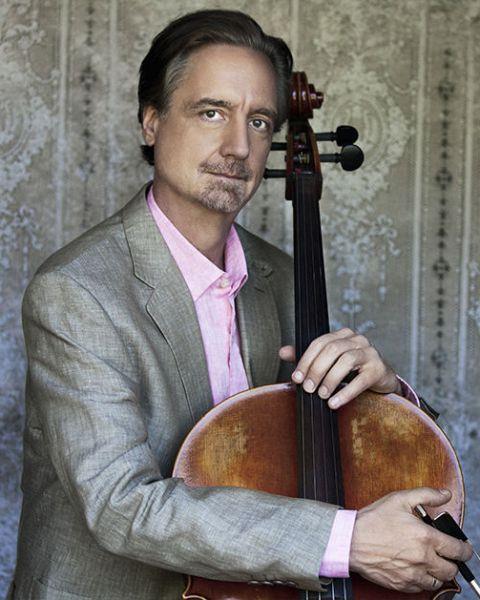
All musicians, especially those soon to emerge from formal education, wonder what path their careers will take and whether they can control their artistic destinies. While there are no proven methods for career control, it is possible to identify the traits common among those who enjoy successful lives in music. These 10 habits of successful musicians are drawn from my course at Stony Brook University entitled Being a Musician. While they can’t guarantee a successful career, at the very least they identify what a hopeful musician should not be without.
1. Know thyself
Being a musician begins with you. Knowing and being able to articulate why you love music, and why you must make a life of it, are the first steps to convincing the world that you are in the business to stay. Understanding how you stack up in the music world, and knowing what you have yet to learn, is equally important. If you are tougher on yourself than others, you’ll be ready for anything.
2. Be an artist
There are many musicians, but few real artists. True artists remake and replenish themselves perpetually, and are the ones followed by a loyal public. Decide what you need in order to honestly call yourself an artist and go get it. Study the people you consider to be great artists and emulate them. You can’t go wrong by spending a day as Mendelssohn, Picasso or Charlie Chaplin. Put yourselves in their heads and you’ll see the world differently.
3. Keep learning
Artists never stop absorbing knowledge and ideas that enrich their minds. Read, listen, watch, ask questions and surround yourself with interesting people. Don’t discount unconventional sources of knowledge. People who are constantly learning are the most interesting, always changing and always growing. Be one of them.
4. Work on your performance
Don’t be afraid to compare your performance to your own ideal. Be relentless in your determination to improve. Tape yourself on your mobile phone. Ask your friends for honest opinions. Listen and watch those musicians you admire most. Ask to play for the best musicians you know. You will only show yourself to be more dedicated than others.
5. Make friends
Careers are not made in isolation. Your friends, colleagues, mentors and industry contact list should be large, ever-growing and well-maintained. It will likely be one of these people who opens opportunities for you, recommends you, or shares a new idea that changes your life. A large musical family is not a bad thing to have.
6. Visualise possible lives
Keep an open mind as to the variety of ways you could be a musician. There are many.
7. Ask not what the industry can do for you…
Everyone who works in the arts industry faces enormous challenges on a day-to-day basis. The best thing a musician can do for them is to offer solutions, not present problems. These people appreciate all your ideas about programming, creative ways to appeal to the public, and help you can offer to run their organisations more powerfully. Ask what you can do for them.
8. Lead by example
The ideas and ideals of an artist are often beyond the comprehension of most around them. As a rule, the most effective way to stand out in the field from the rest is to live the life you believe in. Inspire others through your own work, and opportunities will surely come your way.
9. Give back
It is never too soon to begin sharing your experience, knowledge and inspiration with those poised to become classical music listeners, supporters and practitioners in the near and far futures. As an artist and a musician, you always have something to share. That you are perceived as thoughtful, generous and forward-thinking is completely in your favour.
10. Stay the course
Commitment to your art – respecting your initial reasons for becoming a musician and rejecting all unprincipled derivations from the course of integrity – is essential for ultimately commanding the respect of your colleagues, public, supporters and the entire industry. Today there are numerous temptations in the music world to stray from the highest standards of a pure course of study and practice of great music. Musicians, educators and administrators desperately employ short-lived ideas for getting engagements, creating opportunities for students and selling tickets. At the end of the day, not being among those who doubt the staying power of our art is the only safe way to ensure that you will be trusted and taken seriously.
David Finckel was cellist for the Emerson String Quartet from 1979 to 2013. He is currently the co-artistic director of The Chamber Music Society of Lincoln Center, founder and co-artistic director of Music@Menlo, co-artistic director of Chamber Music Today and The Mendelssohn Fellowship in Korea, professor of cello at The Juilliard School, and visiting professor of music at Stony Brook University.
Photo: Lisa-Marie Mazzucco
Subscribe to The Strad or download our digital edition as part of a 30-day free trial. To purchase back issues click here.


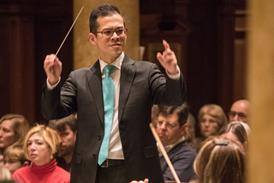
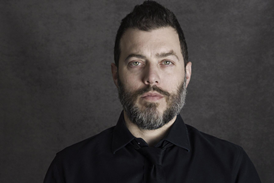

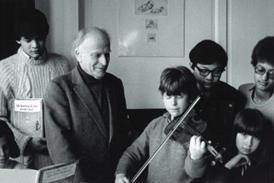




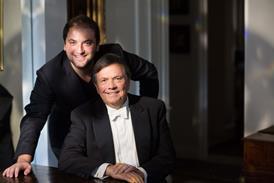
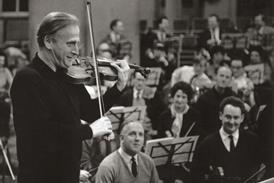
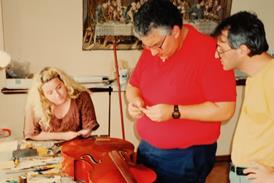













1 Readers' comment